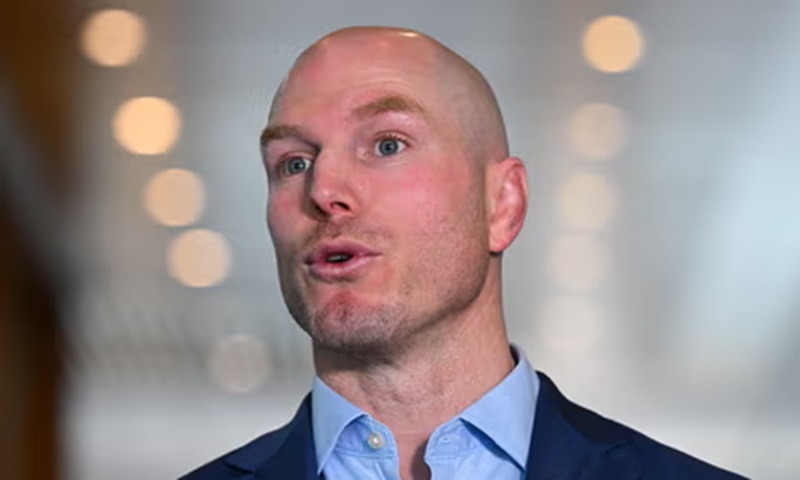The independent senator David Pocock says the Australian government is failing to listen to its “Pacific family” and must stop approving new fossil fuel projects that fuel “an existential threat for those nations”.
In a new podcast to be released on Monday, the ACT senator also described the “really sobering” experiencing of entering parliament and “seeing the influence of the fossil fuel industry” up close.
“It’s been really frustrating to see Australian politicians talk about the Pacific family and then not listen to Pacific Island nation leaders when it comes to bold climate action,” he told the Good Will Hunters podcast, which focuses on the aid and development sector.
“I really think that we need to step up as a country.”
Pocock, a former Wallabies captain, drew on his rugby experience to explain the gap between the Australian government’s rhetoric and its actions in approving coal and gas projects.
“I remember being a rugby player talking to some of my Fijian-Australian teammates, who talk about their home village having to find higher ground for cropping because the land’s becoming too salty, becoming saline,” he said.
“And then you’ve got an Australian government going on about how, you know, we’re part of the Pacific family … and it just doesn’t square.”
Pocock said it was inconsistent for Australian officials to make such pledges to Pacific neighbours “and then go and approve new fossil fuel projects when they know that that is going to be an existential threat for those nations”.
The senator was interviewed by the Good Will Hunters podcast, a collaboration with the Australian Council for International Development and WWF Australia.
Pocock, who was elected in 2022 and holds a key role in Senate negotiations, said he was pressing for strong action after what he characterised as “a long history of denial and then delay in Australian climate politics”.
He said the Labor government was “saying the right things” in pushing to transition the economy away from fossil fuels, but at the same time was approving new coalmines and gas projects.
“One of the things that’s really sobering, getting into parliament, is seeing the influence of the fossil fuel industry, where you have both the major parties essentially wheeling out fossil fuel talking points about the need for more gas – when we export 75% of our gas.”
Pocock did not make any accusations about any individual politicians or specific industry groups.
The Albanese government has legislated a target of reducing greenhouse emissions by 43 percent by 2030 compared with 2005 levels, and net zero by 2050.
The resources minister, Madeleine King, has previously told Guardian Australia: “The government is committed to achieving net zero emissions by 2050 and gas will remain an important energy source during the energy transition. Gas is able to ensure reliability and security of energy supply as coal generation comes to an end.”
The foreign minister, Penny Wong, travelled to Fiji during her first week in office and said Australia under past governments had “neglected its responsibility to act on climate” and showed disrespect to Pacific nations – but she wanted to “assure you that we have heard you”.
During her subsequent travel to the region, Wong has repeatedly been asked about Australia’s fossil fuel policies. She has argued Australia is accelerating the transition from a carbon-intensive economy in a meaningful way.
But the government also faces domestic political pressure over the transition, with the opposition leader, Peter Dutton, accusing Labor of “rushing to renewables” without adequate planning.
SOURCE: THE GUARDIAN/PACNEWS













